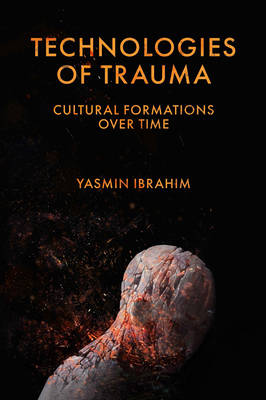
Bedankt voor het vertrouwen het afgelopen jaar! Om jou te bedanken bieden we GRATIS verzending (in België) aan op alles gedurende de hele maand januari.
- Afhalen na 1 uur in een winkel met voorraad
- In januari gratis thuislevering in België
- Ruim aanbod met 7 miljoen producten
Bedankt voor het vertrouwen het afgelopen jaar! Om jou te bedanken bieden we GRATIS verzending (in België) aan op alles gedurende de hele maand januari.
- Afhalen na 1 uur in een winkel met voorraad
- In januari gratis thuislevering in België
- Ruim aanbod met 7 miljoen producten
Zoeken
€ 161,45
+ 322 punten
Omschrijving
Media technologies do not simply record or represent trauma but transform trauma into a cultural form that is multifariously commodified in different contexts. In this crucial new text, Ibrahim introduces us to the notion of 'technologies of trauma', in deconstructing the idea of trauma as a cultural form in society. Ibrahim examines the trajectory of witnessing and testimony through modernity, utilizing the technologies of trauma as a conceptual lens. Such a notion acknowledges humanity's reliance on technologies to transmute history, trauma, or memory, transforming technologies from medium and machine into artefacts for circulation and exchange. The transcendence of medium into artefacts as sites of trauma equally highlights the socio-political frames within which testimony is extracted and witnessing is enacted, unleashing trauma as a cultural form and a resonant genre of popular consumption. The development of print, photography, television, and digital platforms as technologies of trauma reiterates the popularization of trauma as a cultural genre, witnessing and testimony as cultural forms reiterating how these are intimately implicated in our emergence as active consuming communities of trauma and in tandem how these remake us as vulnerable subjects through the circulation of trauma within a popular consumption economy.
Specificaties
Betrokkenen
- Auteur(s):
- Uitgeverij:
Inhoud
- Aantal bladzijden:
- 176
- Taal:
- Engels
Eigenschappen
- Productcode (EAN):
- 9781802621365
- Verschijningsdatum:
- 11/08/2022
- Uitvoering:
- Hardcover
- Formaat:
- Genaaid
- Afmetingen:
- 155 mm x 231 mm
- Gewicht:
- 362 g

Alleen bij Standaard Boekhandel
+ 322 punten op je klantenkaart van Standaard Boekhandel
Beoordelingen
We publiceren alleen reviews die voldoen aan de voorwaarden voor reviews. Bekijk onze voorwaarden voor reviews.









